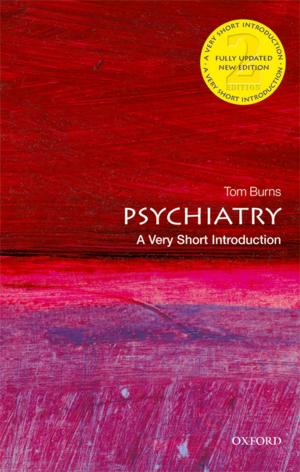Willing, Wanting, Waiting
Nonfiction, Religion & Spirituality, Philosophy, Ethics & Moral Philosophy, Health & Well Being, Psychology| Author: | Richard Holton | ISBN: | 9780191607547 |
| Publisher: | OUP Oxford | Publication: | September 1, 2009 |
| Imprint: | OUP Oxford | Language: | English |
| Author: | Richard Holton |
| ISBN: | 9780191607547 |
| Publisher: | OUP Oxford |
| Publication: | September 1, 2009 |
| Imprint: | OUP Oxford |
| Language: | English |
Richard Holton provides a unified account of intention, choice, weakness of will, strength of will, temptation, addiction, and freedom of the will. Drawing on recent psychological research, he argues that, rather than being the pinnacle of rationality, the central components of the will are there to compensate for our inability to make or maintain sound judgments. Choice is understood as the capacity to form intentions even in the absence of judgments of what action is best.Weakness of will is understood as the failure to maintain an intention, or more specifically, a resolution, in the face of temptation--where temptation typically involves a shift in judgment as to what is best, or in the case of addiction, a disconnection between what is judged best and what is desired.Strength of will is the corresponding ability to maintain a resolution, an ability that requires the employment of a particular faculty or skill. Finally, the experience of freedom of the will is traced to the experiences of forming intentions, and of maintaining resolutions, both of which require effortful activity from the agent.
Richard Holton provides a unified account of intention, choice, weakness of will, strength of will, temptation, addiction, and freedom of the will. Drawing on recent psychological research, he argues that, rather than being the pinnacle of rationality, the central components of the will are there to compensate for our inability to make or maintain sound judgments. Choice is understood as the capacity to form intentions even in the absence of judgments of what action is best.Weakness of will is understood as the failure to maintain an intention, or more specifically, a resolution, in the face of temptation--where temptation typically involves a shift in judgment as to what is best, or in the case of addiction, a disconnection between what is judged best and what is desired.Strength of will is the corresponding ability to maintain a resolution, an ability that requires the employment of a particular faculty or skill. Finally, the experience of freedom of the will is traced to the experiences of forming intentions, and of maintaining resolutions, both of which require effortful activity from the agent.















